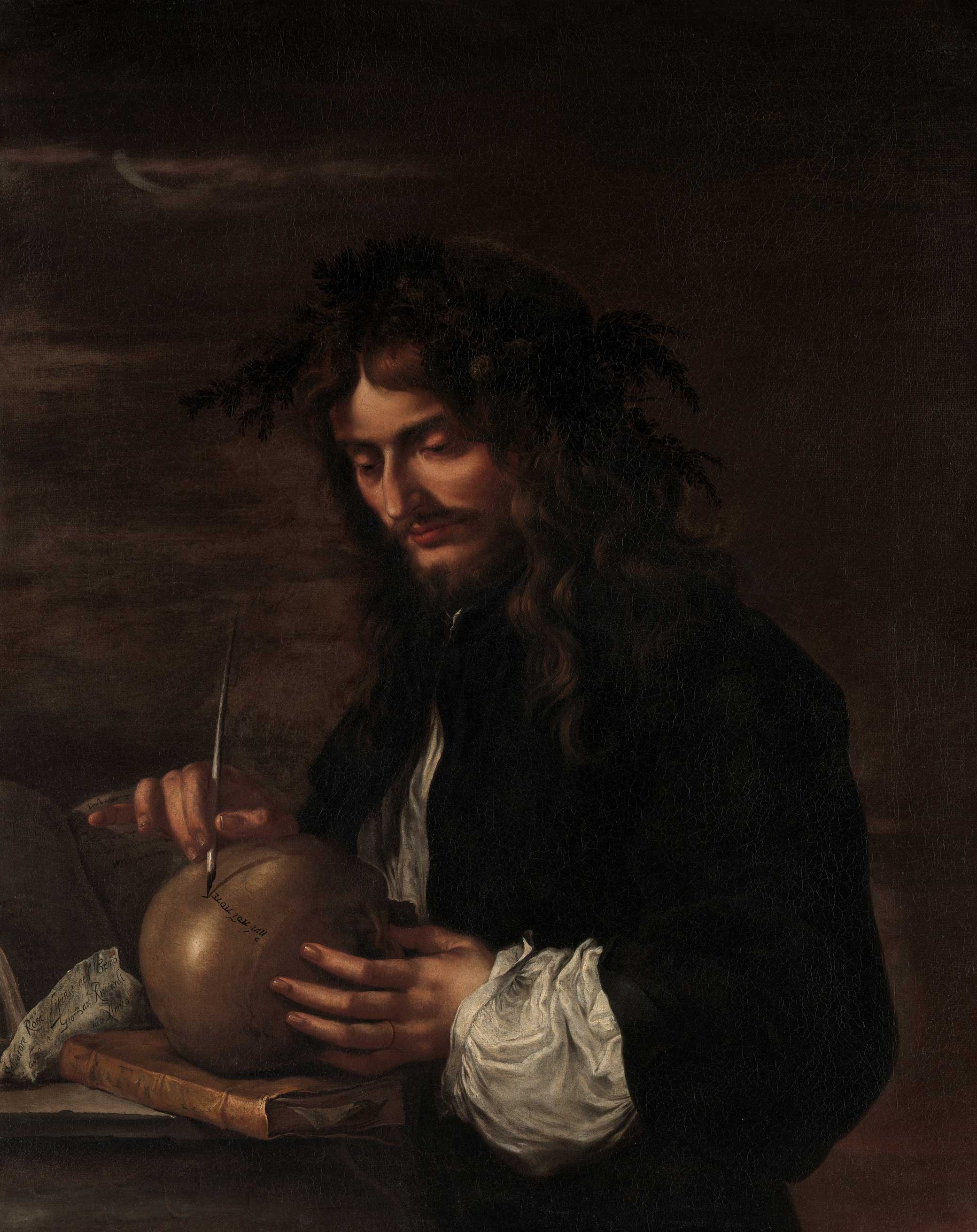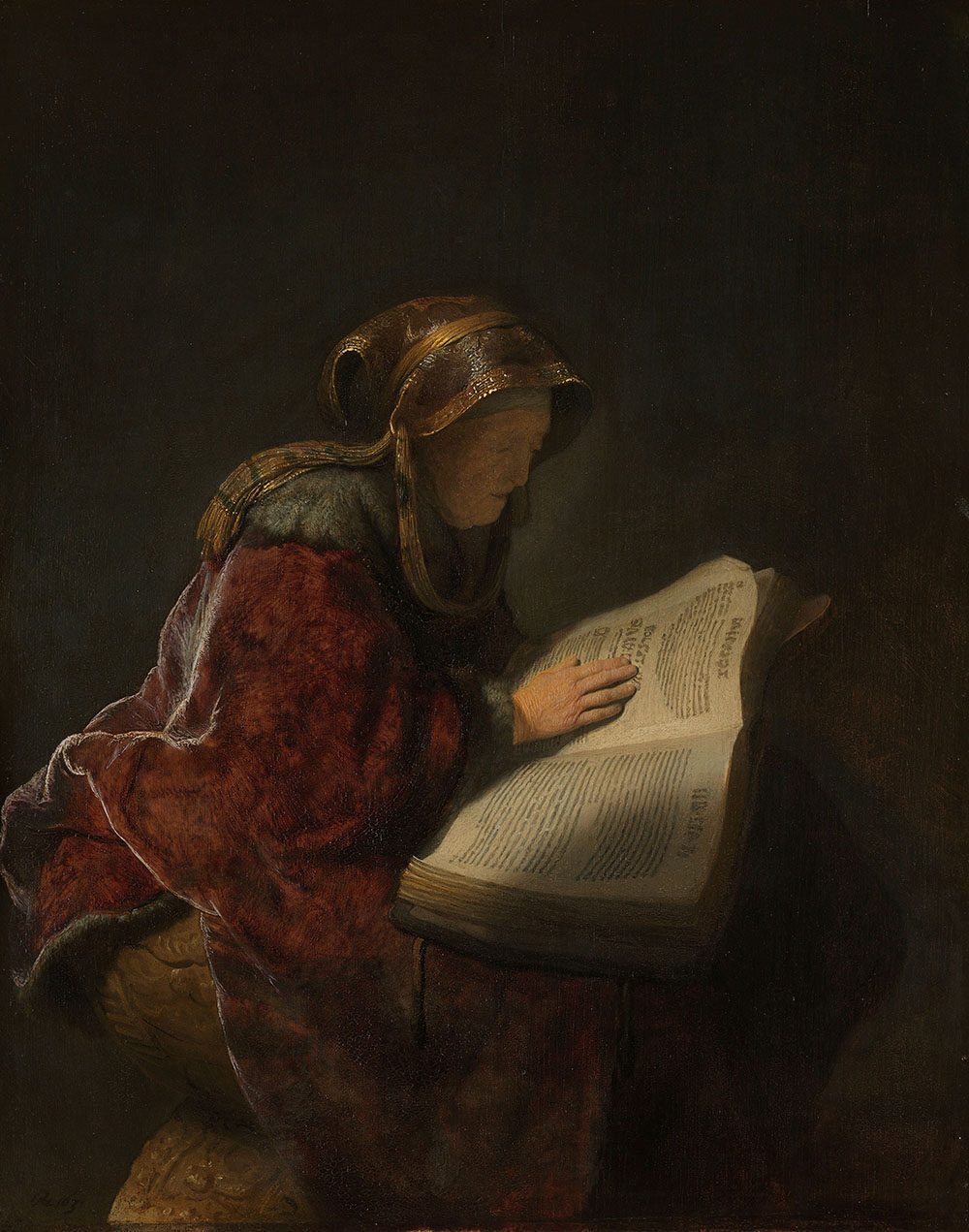
Self-Portrait, by Salvator Rosa, c. 1647. The Metropolitan Museum of Art, bequest of Mary L. Harrison, 1921.
For the rest of the year, Lapham’s Quarterly is running a series on the subject of history and the pleasures, pain, and knowledge that can be found from studying it. For more than fifty issues, contributors from antiquity to the present day have participated in millennia-spanning conversations on themes including friendship, happiness, death, and the future. But what did they make of the idea of studying the past in the first place? Check back every Thursday from now until the end of the year to read the latest.
In his famous 1513 letter to Florentine politician Francesco Vettori, sent from San Casciano while exiled from Florence, Niccolò Machiavelli mentioned that he was working on a “small text” on principalities, which would become The Prince. In that work, Machiavelli explained, “I shall leave out reasoning on republics because I have reasoned on them at length another time,” possibly referring to an early draft of Discourses on Livy. Around the same time he began attending an informal salon of literature and politics at the residence of one of his patrons, Bernardo Rucellai. In the Orti Oricellari, amid the classical statues in the shade of the palazzo, the intellectuals of Florence gathered to listen to Machiavelli hold forth on the subject of the Roman Republic. He built on those talks in the Discourses, likely editing the work until his death in 1527; it was published four years later.
Thoroughly dissatisfied with the Renaissance approach to reviving the classical era and the humanism of Petrarch, Machiavelli used the Discourses, ostensibly a study of Livy’s sweeping history of Rome, to examine contemporaries’ assumptions about statehood, the populace, and power; he found in history not simply records of the past but practical advice for the present. This was the historian’s true task, he thought. It was difficult, because
the records of time are destroyed by various causes, some being the acts of men and some of heaven. Those that are the acts of men are the changes of religion and of language; for when a new sect springs up, that is to say a new religion, the first effort is (by way of asserting itself and gaining influence) to destroy the old or existing one; and when it happens that the founders of the new religion speak a different language, then the destruction of the old religion is easily effected. This we know from observing the proceedings of the Christians against the heathen religion; for they destroyed all its institutions and all its ceremonies, and effaced all record of the ancient theology. It is true that they did not succeed in destroying entirely the record of glorious deeds of the illustrious men of the ancient creed, for they were forced to keep up the Latin language by the necessity of writing their new laws in that tongue; but if they could have written them in a new language (bearing in mind their other persecutions), there would have been no record whatever left of preceding events.
Despite these forces of destruction, as well as because of them, it was necessary to examine carefully the desires and motives of past generations and centuries and establish some continuity with the present day. While working on his family’s farm in San Casciano, Machiavelli would return home at the end of the day, take off his dirty clothes, and wear his best finery in preparation for his nightly conversations with ancient scholars. “I am not ashamed to converse with them and ask them for the reasons for their actions,” he said, “and they in their full humanity answer me.” This “diligent study of the past,” he wrote in the Discourses, would help his contemporaries “foresee what is likely to happen in the future in any republic, and to apply those remedies that were used by the ancients, or, not finding any that were employed by them, to devise new ones from the similarity of the events,” because, in the end, “all cities and all peoples are and ever have been animated by the same desires and the same passions.” In his preface to the Discourses, he lay out his intentions and his method of study.

Although the envious nature of men, so prompt to blame and so slow to praise, makes the discovery and introduction of any new principles and systems as dangerous almost as the exploration of unknown seas and continents, yet animated by that desire which impels me to do what may prove for the common benefit of all, I have resolved to open a new route, which has not yet been followed by anyone and may prove difficult and troublesome, but may also bring me some reward in the approbation of those who will kindly appreciate my efforts.
And if my poor talents, my little experience of the present, and insufficient study of the past should make the result of my labors defective and of little utility, I shall at least have shown the way to others, who will carry out my views with greater ability, eloquence, and judgment, so that if I do not merit praise, I ought at least not to incur censure.
When we consider the general respect for antiquity, and how often—to say nothing of other examples—a great price is paid for some fragments of an antique statue, which we are anxious to possess to ornament our houses with or to give to artists who strive to imitate them in their own works; and when we see, on the other hand, the wonderful examples which the history of ancient kingdoms and republics presents to us, the prodigies of virtue and of wisdom displayed by the kings, captains, citizens, and legislators who have sacrificed themselves for their country—when we see these, I say, more admired than imitated, or so much neglected that not the least trace of this ancient virtue remains, we cannot but be at the same time as much surprised as afflicted. The more so as in the differences that arise between citizens, or in the maladies to which they are subjected, we see these same people have recourse to the judgments and the remedies prescribed by the ancients. The civil laws are in fact nothing but decisions given by their jurisconsults, and which, reduced to a system, direct our modern jurists in their decisions. And what is the science of medicine but the experience of ancient physicians, which their successors have taken for their guide? And yet to found a republic, maintain states, govern a kingdom, organize an army, conduct a war, dispense justice, and extend empires, you will find neither prince, nor republic, nor captain, nor citizen who has recourse to the examples of antiquity! This neglect, I am persuaded, is due less to the weakness to which the vices of our education have reduced the world than to the evils caused by the proud indolence that prevails in most of the Christian states and to the lack of real knowledge of history, the true sense of which is not known or the spirit of which they do not comprehend. Thus the majority of those who read it take pleasure only in the variety of the events that history relates, without ever thinking of imitating the noble actions, deeming that not only difficult but impossible; as though heaven, the sun, the elements, and men had changed the order of their motions and power and were different from what they were in ancient times.
Wishing, therefore, so far as in me lies, to draw mankind from this error, I have thought it proper to write upon those books of Livy that have come to us entire despite the malice of time; touching upon all those matters that, after a comparison between the ancient and modern events, may seem to me necessary to facilitate their proper understanding. In this way those who read my remarks may derive those advantages that should be the aim of all study of history; and although the undertaking is difficult, aided by those who have encouraged me in this attempt, I hope to carry it sufficiently far, so that but little may remain for others to carry it to its destined end.
Read the other entries in this series: Polybius, Michel de Montaigne, Thomas Hardy, Etsu Inagaki Sugimoto, Voltaire, Charles Lamb, al-Biruni, Ibn Khaldun, Germaine de Staël, and Agnes Strickland and Elizabeth Strickland.